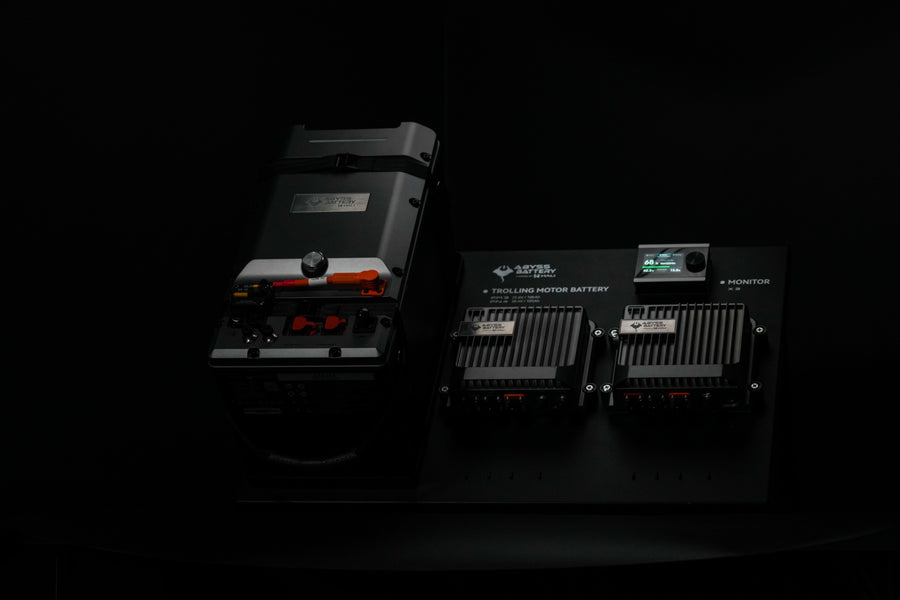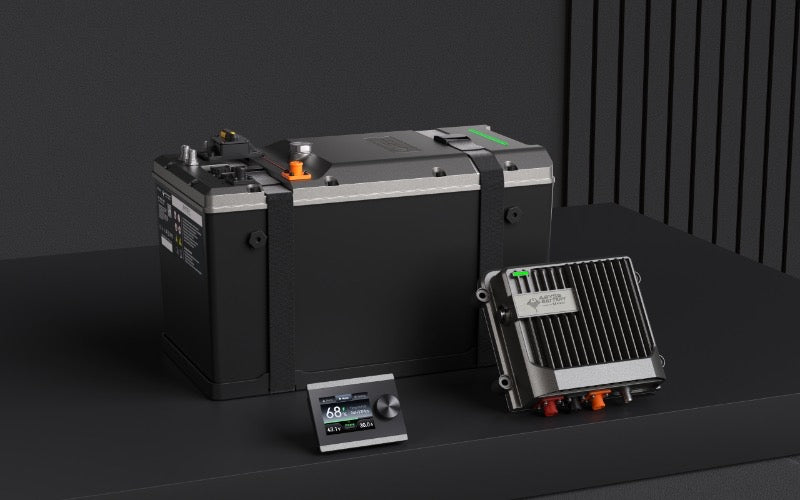Lithium-Ion vs. Lead-Acid Marine Batteries

Choosing the battery that powers your boat is a major decision that requires short-term and long-term thinking. In the past, there weren’t many options for marine batteries, but the options have grown in recent times. Where lead-acid batteries were once the go-to standard, lithium-ion batteries have a stronger stance nowadays. We’ll go over the differences between lithium-ion and lead-acid marine batteries so that you can see the differences.
Differences in Lifespan
Marine batteries are often measured by the number of charging and discharging cycles they can undergo before needing a replacement. Between lithium-ion and lead-acid marine batteries, lithium-ion batteries beat out the competition. Lithium-ion batteries allow for a few thousand charge cycles, and that’s without any serious maintenance. On the other hand, lead-acid batteries require more maintenance, but might not even make it to a thousand cycles before giving out on you.
Weight Considerations
Your boat’s weight is a huge factor in its capacity and mobility, and your boat’s battery is an important part of this measurement. For an average lead-acid battery, around 100 Ah, expect a weight from 60 to 80 pounds. A comparable lithium-ion battery is far lighter, sometimes coming in at half of the weight of a lead-acid battery.

Power Storage Capacity
Lithium-ion marine batteries gained popularity when boat owners discovered their increased power storage capacities. Another important thing to consider is lead-acid batteries run into issues if you discharge them too much, too quickly. You can damage a lead-acid battery if you discharge it, usually below half its capacity. Lithium-ion batteries allow more discharge without drawbacks, some allowing a full discharge without any issue.
Comparative Costs
Cost is one issue that might drive you one way or another. There’s no doubt that a comparable lead-acid battery costs less than a lithium-ion one. However, you have to understand what exactly you’re paying for. While lithium-ion batteries are more expensive upfront, they last far longer and require less maintenance. With a long-term mindset, buying a lithium-ion battery actually saves money compared to buying a lead-acid one.
If you’re in the mood to grab a lithium marine battery for your own boat, Abyss Battery can supply you with what you need. Give your boat the upgrade it deserves with a high-quality lithium-ion battery from Abyss Battery.




I would like to use a marine lithium battery for the house side and use the lead acid for starting. The reason is that I would only have to buy one battery. Can I DO THIS? And can I charge the lithium battery with the conventional engine 55 amp alternator?
Thanks.
Leave a comment